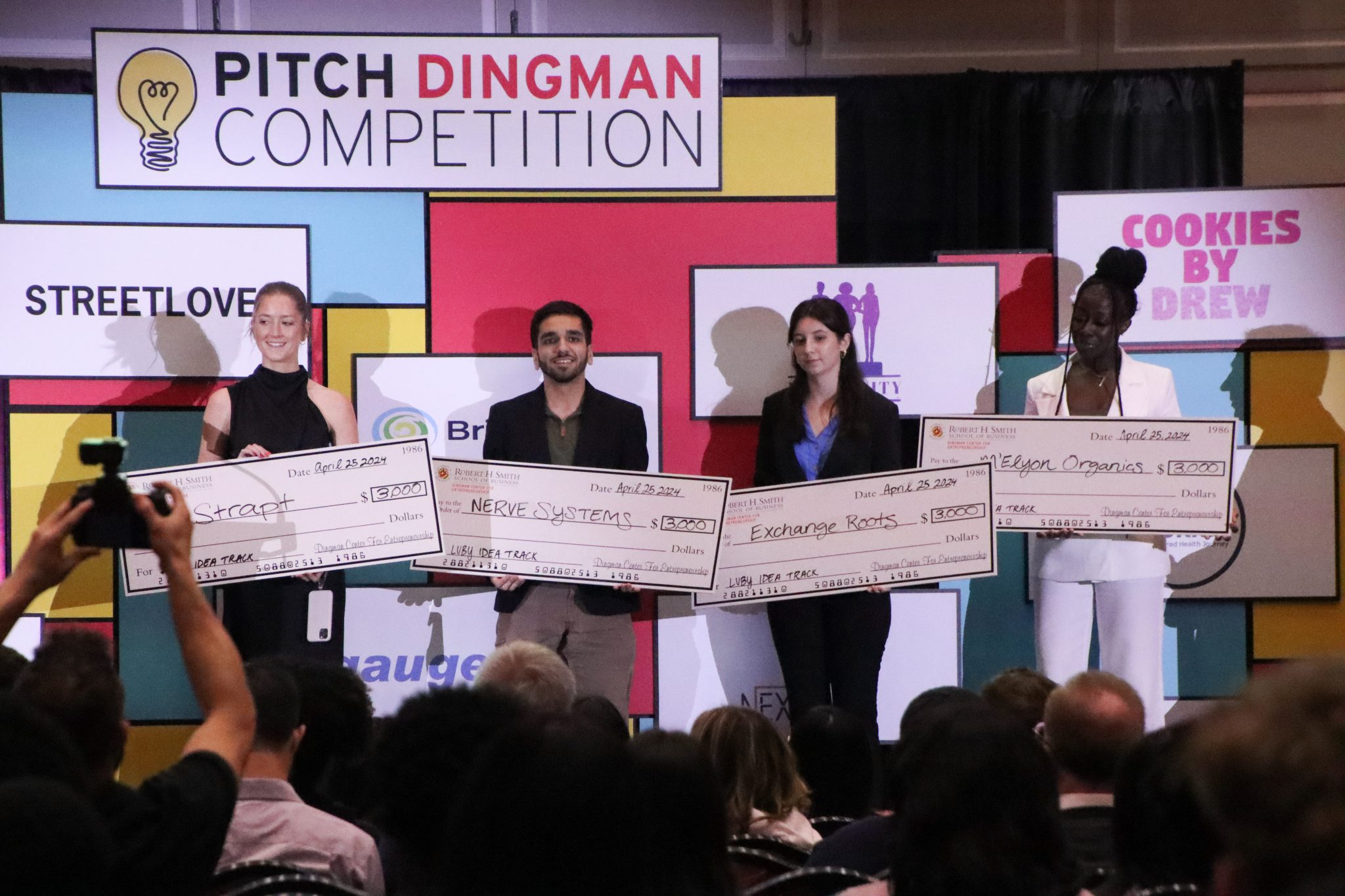By Nick Elliott
For The Diamondback
University System of Maryland students and alumni pitched their businesses to a panel of investors and entrepreneurs Thursday night in the Pitch Dingman Competition finals at the Samuel Riggs IV Alumni Center.
Ten businesses, comprised of students and alumni from the university system, participated in the annual finalist competition. The Dingman Center for Entrepreneurship organized the event, which offered competitors a chance to win a share of $170,000 in prizes.
“It is really an opportunity to explore entrepreneurship to get some validation on their ideas [and] to really polish their messaging and the actual quality of their business model,” the Dingman Center’s managing director Mike Hoffmeyer said.
The funding was divided into five categories, which included the David and Robyn Quattrone Tech Track for technology or tech-enabled ventures, the All Stars Track for student and alumni across the university system with businesses at any stage, the Alumni Pilot Track for ventures founded by this university’s alumni in any industry or stage, the Joan and Chester Luby Idea Track for ideas “to change the world” and the Main Street Track for students at this university with small businesses with at least $1,000 in revenue that are not focused on scale.
Journiy, a digital chronic care management company, won the grand prize of $25,000 in the Quattrone track. University of Maryland graduate student Mildred Diggs founded the company in 2022.
Diggs, a business administration graduate student, said her company aims to make it easier for patients to follow their treatment plans through a culturally tailored care management platform.
[Claim app encourages students to try new restaurants, helps brands advertise]
Doctors do not have the resources or time to personalize each of their patients’ treatment plans to different cultural backgrounds, Diggs noted.
As a registered nurse, Diggs emphasized that she often saw patients abandon their treatment program due to not receiving the right plan for them — an issue Journiy hopes to address.
“Our team has ultimate experience and the professional expertise to solve this problem,” Diggs said.
StreetLoveDMV — a vintage clothing and streetwear store — won the $15,000 top prize for the Main Street track. The business offers unique streetwear and hopes to streamline the shopping experience for younger adults by using customer data, according to founder Jeffrey Kyei-Asare.
Kyei-Asare, a junior finance and information systems major at this university, founded the company two years ago. Since then, Kyei-Asare said he has hosted pop-up shops at various colleges and events across the Washington, D.C., Maryland and Virginia area.
The self-funded business has generated millions of views through social media marketing, which has helped generate more than $85,000 in revenue, Kyei-Asare said.
“We have unique product offerings and styling to offer convenience, accessibility and efficiency that our competitors don’t,” Kyei-Asare said.
[UMD GSG event allows graduate students to present research]
The $20,000 prize for the All Stars Track was awarded to NextStep Robotics, a business that designs robotic solutions for stroke rehabilitation.
Bradley Hennessie, the company’s chief executive officer, said the business developed an ankle exoskeleton that is designed to help treat “foot drop” in stroke patients. Foot drop is a mobility barrier for many stroke patients that keeps them from lifting their toe while walking, Hennessie, a Towson University alum, added.
“The market size for physical therapy equipment is very large and we are looking forward to taking a piece of that,” Hennessie said.
Hennessie said the technology hopes to focus on patient accessibility and will be available to both large and small clinics.
The Alumni Pilot Track was newly added in this year’s competition exclusively for this university’s alumni, Hoffmeyer said. The addition is the first step in demonstrating to alumni that this university wants to continue communicating and collaborating with businesses after graduation, he added.
“Money isn’t the biggest value thing you take away from the competition,” Hoffmeyer said. “There are a lot of people in that audience and, oftentimes, it’s whose radar you get on by being in this event on that stage.”



